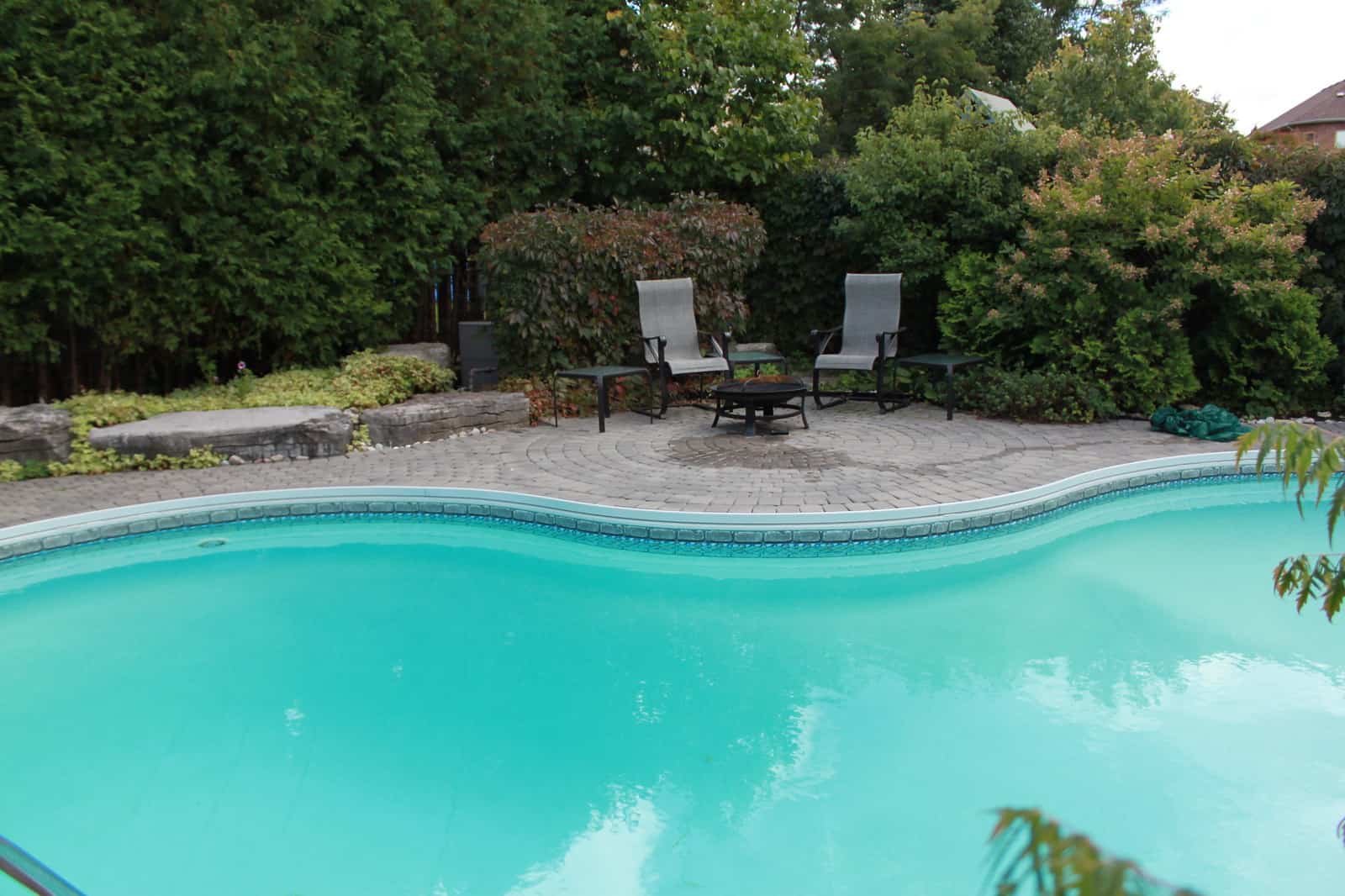Detecting a leak in a saltwater pool can be a bit challenging, but there are a few signs that can indicate that your pool is losing water. Here are some common signs of a leak in a saltwater pool:
- The water level is consistently dropping: If you notice that the water level in your pool is dropping more quickly than usual, this may indicate that you have a leak. Check the water level over a few days to see if it’s consistently dropping.
Remember: Evaporation is a normal and expected part of pool ownership. When you get hot, sunny weather along with heavy pool usage with splashing, the water level will drop and significantly at that.
A standard 16 x 32-foot rectangular pool with an average depth of 5′ can lose around 1.5″ (or about 3.8 cm) of water per week due to evaporation. This equates to roughly 250 gallons (or about 946 liters) of water. - The salt level is consistently dropping: If you have to add salt to your pool more often than usual, this could be a sign that you have a leak. However, keep in mind that changes in weather and water usage can also affect the salt level.
This can be a good indication that there is something wrong and that a leak could be the culprit. Salt doesn’t evaporate. So even if you have water loss due to evaporation, it won’t cause salt loss. If you notice consistent salt loss, it means a large amount of water is leaving the pool. If you’re not removing water to lower the level, it’s probably a leak that is the problem. - The area around the pool is wet: If you notice water pooling around your pool, or if the ground around the pool is wet or spongy, this could indicate that water is leaking from your pool.
If you have a patio around your pool it might be difficult to notice. But if you have grass or a garden and notice expected wetness, it could be from a leak in the pool.
Same goes with leaks around the heater, pump or other pool equipment. Sometimes leaks aren’t in the pool themselves but in the equipment. - Cracks or damage in the pool surface: If you notice cracks or damage in the pool surface, this could be a sign of a leak. Check the area around the damage to see if there are any wet spots.
Get your pool company to take a look to see about not only repairing the damage but also to check for a possible leak that has occurred. - Increased chemical usage: If you have to use more chemicals than usual to maintain the correct water balance, this could be a sign of a leak. A leak can dilute the chemicals in your pool, making it harder to maintain the proper water balance.
If you suspect that your pool has a leak, it’s important to address it as soon as possible to prevent further damage. You can try to locate the leak yourself by conducting a bucket test or hiring a professional pool leak detection service.

